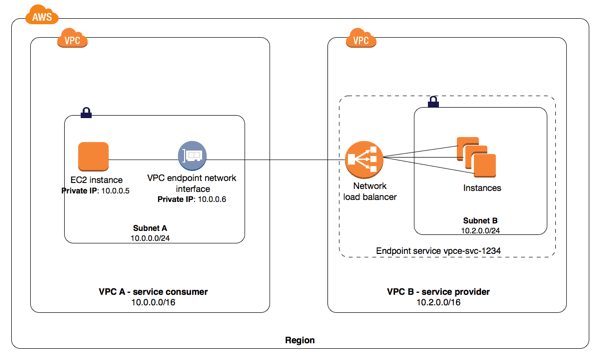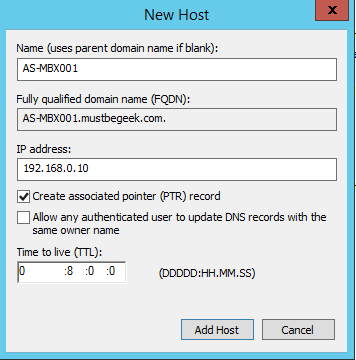
Two things are different: a domain name and a package hosting. Hosting is where you store your files on a server. Domain is a name for your site. Both services work together to ensure your website is available to everyone. If you own a physical shop, it is important to have an address people can use for accessing your store. You also need to have a physical location, such as a stand-alone building or strip mall.
Domain names are easier in memory
Domain names have a number of advantages. A domain name can be easily remembered, just like your phone number. An IP address, however, can be more difficult to remember. It's more difficult to type a URL than to remember its IP address. A good rule of thumb is to use between two and three words for your domain name. Avoid obscure words.
A domain name should be easy to remember. Domain names tend to be shorter, more memorable, simpler to type, and easier for users. They are also more easy to remember than IP addresses for web hosting. When a visitor enters a domain, it will send a request at a cluster servers known as the Domain Name System. In response, they will be given the IP address of the website's hosting server.

They make it easy to find the location of a website.
A domain is a short form of the website’s IP address. It connects computers to the web server. It can be hard to remember an IP address and type it in. Domains make it easier to find a website. However, your browser will still need to know the exact location of the web server to find a website.
When you enter a URL, an authoritative server will send a request to find the IP address associated with the domain. This takes a few minutes to complete. A domain's length is often shorter than it should be. This makes it easier for users to remember, type, and also supports a positive user-experience. Potential visitors can be scared off by a domain that is too lengthy, especially in light of the popularity of mobile devices.
They store files from a website on a webserver
Web hosting allows you to store your website's files on a computer, called a web host. These servers run 24 hours a days and include all of the required software and hardware. A web host maintains these servers and is responsible for their security and upkeep. It is the responsibility of the web host to make sure these servers have the most up-to-date software. The files that make up a website are stored on the web server and accessed by a web browser.
A web server is a powerful computer that stores a website's files. The server returns the web page to the visitor when the visitor requests it. A web server is the core component of a website. However, it can have many uses. You can use a web server to host many domain names and point them to the same server.

They are compatible
It's crucial to understand how web hosting and domains work together when you launch an online company. The domain is the URL of the website. Hosting stores the files and data. Hosting is more expensive than domains, but domains are still important and valuable.
Your domain is the address that visitors will find your website. It could be a brand or a combination number and letters. A top-level domain is a domain that is separated from hosting.
FAQ
Should I hire a web designer or do it myself?
Don't pay for web design services if you want to save money. If you need high quality results, it may not be worthwhile to hire someone else to build your website.
The truth is, there are many different ways to build websites from scratch without the need for expensive professional designers.
If you're willing to put in the time and effort, you can learn how to make a great-looking site yourself using free tools like Dreamweaver and Photoshop.
Consider outsourcing your project to an experienced freelancer web developer who charges hourly instead of per-project.
How do you design a website?
Your customers will first need to understand the purpose of your website. What are they looking for when they visit your site?
What kind of problems can they have if they cannot find what they want on your site?
After you have this information, you need to find out how to solve the problem. It is also important to ensure your site looks great. It should be simple to navigate and use.
Your website should be well-designed. It should not take too much time to load. If it takes too long, people may not be able to stay as long. They will go elsewhere.
If you want to create an eCommerce site, think about where all of your products are located. Do they all reside in one spot? Are they all in one place?
You must decide whether to sell one product only or many products simultaneously. Are you interested in selling one type of product? Or multiple types?
These questions will help you decide if you want to build your website.
Now it is time to focus on the technical side. How will your site operate? Will it be fast enough? Can they access it quickly via their computers?
Can people buy things without having to pay more? Is it necessary for them to register before they are able to purchase anything?
These are the essential questions you should ask yourself. Once you know the answers to these questions, you'll be ready to move forward.
Do I use WordPress?
A small website is the best way to build a successful web presence. If you have the time or resources to create a complete site, do so. If you don't have the resources to build a full-fledged site, a blog may be the best choice. As you learn to develop and design websites, you can always add new features.
However, before you create your first website you need to set up a primary URL. This will provide a point to which you can publish content.
Can I build my website using HTML & CSS?
Yes! If you've followed the steps, you should now be able create your website.
You now know how to build a website structure. Now you need to learn HTML and CSS coding.
HTML stands to represent HyperText Markup Language. It is similar to writing a recipe. It would list the ingredients, directions, and how to do it. Similarly, HTML tells a computer which parts of text appear bold, italicized, underlined, or linked to another part of the document. It's the language for documents.
CSS stands for Cascading Style Sheets. This is a stylesheet for recipes. Instead of listing each ingredient and instructing, you can write down general guidelines for font sizes, colors and spacing.
HTML tells a browser how to format a webpage; CSS tells a browser how to do it.
Don't panic if either of these terms are confusing to you. Follow these tutorials to create beautiful websites.
What is a website static?
A static site is one that stores all content on a server. Visitors can access the website via web browsers.
The term "static” refers the fact that there is no dynamic feature such as changing images or video, animations etc.
This type of site was originally developed for use in corporate intranets but has since been adopted by individuals and small businesses who want simple websites without the complexity of custom programming.
Because they are less maintenance-intensive, static sites have gained popularity. They are simpler to update and maintain than fully-featured websites that have many components (like blogs).
They load much faster than dynamic counterparts. This makes them ideal for users on mobile devices or those with slow Internet connections.
In addition, static sites are more secure than their dynamic equivalents. You can't hack into a static site. Hackers can only access the data contained in a database.
There are two main options for creating a static website.
-
Utilizing a Content Management System.
-
Create a static HTML website
Which one you choose depends on your requirements. I recommend a CMS if you're just starting to create websites.
Why? Because you have complete control over your website. With a CMS, you don't need to hire someone to help you set up your site. Upload files to the web server.
You can still learn to code and make a static website. It will take some time to learn to program.
Statistics
- Studies show that 77% of satisfied customers will recommend your business or service to a friend after having a positive experience. (wix.com)
- It's estimated that in 2022, over 2.14 billion people will purchase goods and services online. (wix.com)
- At this point, it's important to note that just because a web trend is current, it doesn't mean it's necessarily right for you.48% of people cite design as the most important factor of a website, (websitebuilderexpert.com)
- It's estimated that chatbots could reduce this by 30%. Gone are the days when chatbots were mere gimmicks – now, they're becoming ever more essential to customer-facing services. (websitebuilderexpert.com)
- Did you know videos can boost organic search traffic to your website by 157%? (wix.com)
External Links
How To
What is website hosting?
Website hosting is the place where visitors go to visit a website. There are two types:
-
Shared hosting - This is the cheapest option. Your website files are stored on a server that is owned by another person. Customers who visit your website send their requests via the Internet over to that server. The request is then handed to the owner of that server.
-
Dedicated hosting: This is the most costly option. Your website is located on only one server. No other websites share space on the server, so your traffic stays private.
Because shared hosting is more affordable than dedicated hosting, most businesses opt for it. Shared hosting allows you to have your website run by the company who owns the server.
Each option has its pros and cons. Here are the differences:
Sharing Hosting Pros
-
Lower Cost
-
Simple to Setup
-
Frequent Updates
-
It is available on many Web Hosting Companies
Shared hosting can often cost as little as $10/month. However, this price typically includes bandwidth. Bandwidth describes the amount of data that can be transferred over the Internet. Even if you are only uploading photos to your blog site, high data transfer rates can still cost you extra.
You'll soon realize why your old host cost so much once you get started. Many shared hosts offer very little customer support. Although they will help you set up your site occasionally, you are on your own once you have done that.
It is important to find a provider that provides 24-hour support. They will take care of any issues while you sleep.
Cons of dedicated hosting
-
More Expensive
-
Fewer Common
-
Specific Skills Required
You're getting everything you need with dedicated hosting to operate your website. You won't have to worry about whether you're using enough bandwidth or whether you've got enough RAM (random access memory).
This means you will need to spend more upfront. However, once you start running your business online, you'll find that you won't need much technical assistance. You'll quickly become an expert at managing your server.
So Which Is Better For My Business?
It all depends on the type of website you are creating. Shared hosting is best for those who only need to sell products. It is simple to set up and easy to maintain. A server shared with several other sites means that you will receive frequent updates.
However, dedicated hosting can be a great option if you're looking to build a community around the brand. It allows you to focus on building your brand and not worrying about managing your traffic.
Bluehost.com has both. Bluehost.com offers unlimited monthly data transfers, 24/7 customer support, domain registrations free of charge, and a 30-day guarantee for your money back.